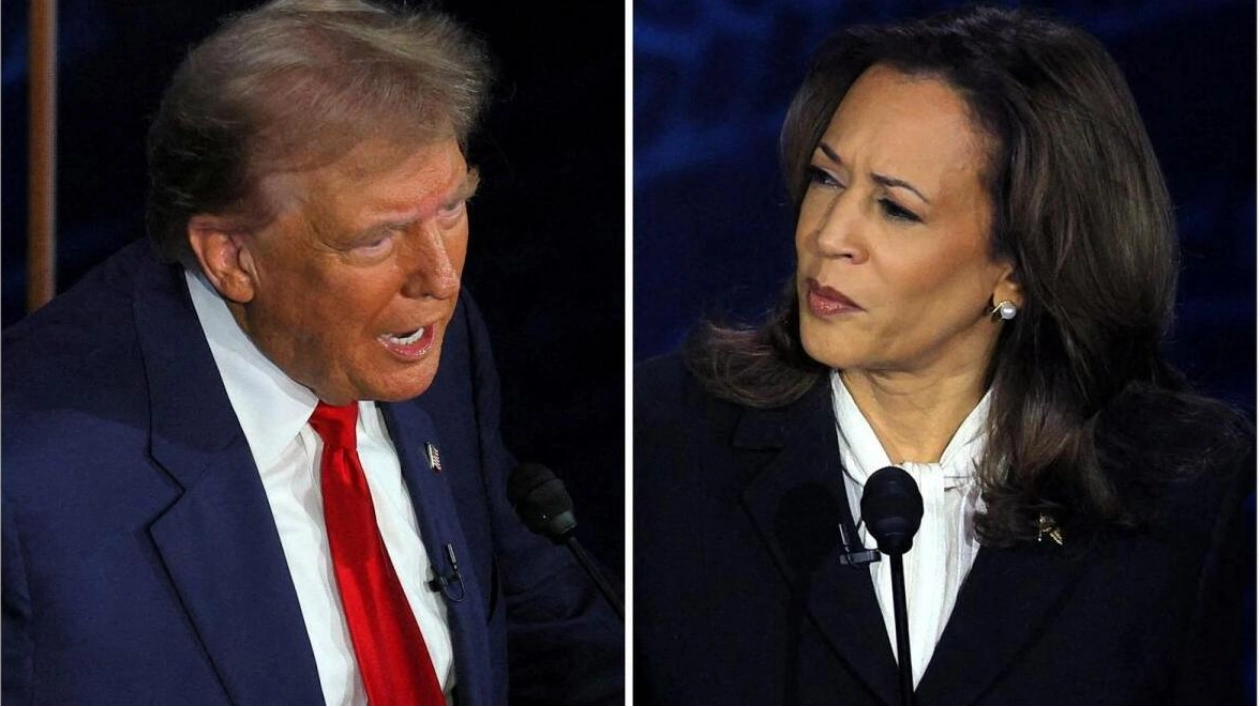A recent Reuters/Ipsos poll reveals that a slim majority of US voters support Donald Trump's pledge to hike tariffs on imported goods, especially from China, underscoring his economic edge over his rival, Vice-President Kamala Harris. Both the Republican ex-president and his Democratic challenger have promised to implement tax cuts if elected in the November 5 election. However, voters also believe that Trump is more likely to reduce the $35 trillion national debt, despite independent economic analysts predicting that his policies would have the opposite effect.
The survey conducted on September 11-12 found that 56% of registered voters would be more inclined to back a candidate advocating for a new 10% tariff on all imports and a 60% tariff on imports from China. In contrast, 41% said they would be less likely to support such a candidate. The poll indicates that Harris holds a 5-percentage-point lead over Trump nationally, although the presidential race will largely hinge on the outcomes in approximately seven swing states where the contest is tighter.
The poll highlights Trump's strengths on a pivotal issue, the US economy. 'This is what's keeping the election so close,' noted Karlyn Bowman, a polling expert at the conservative American Enterprise Institute. Bowman attributes Trump's advantage to the perception that the economy thrived during his 2017-2021 presidency and his success in convincing voters that US economic issues were rooted in unfair competition from other countries, particularly China.
The poll also found that one-third of Democrats would be more likely to vote for a candidate supporting higher tariffs and steep levies on Chinese goods, compared to two-thirds who would be less likely to do so. Independent voters mirrored the broader electorate. Prior to the Covid-19 pandemic in 2020, the US economy, by various metrics, performed well under the Trump administration, bolstered by tax cuts for consumers. Unemployment reached its lowest point in decades, although the national debt was increasing and would skyrocket during the pandemic.
This year, Trump has promised a series of tax cuts on the campaign trail, including eliminating income tax on tipped income, a proposal also supported by Harris. On Thursday, he vowed to abolish taxes on overtime pay. Seventy percent of registered voters backed the idea of exempting tips from taxes. Trump referred to himself as a 'tariff man' during his presidency, imposing levies on Chinese imports. Economists, including those at Wall Street bank Goldman Sachs, are cautious about this approach, estimating that Trump's tariffs and other policies would slow the economy.
Harris cited Goldman Sachs' assessment during Tuesday's presidential debate and pointed out that many independent economists believe Trump's policies would exacerbate the national debt. However, the poll found that 37% of US voters view Trump as more likely to focus on debt reduction, compared to 30% who chose Harris. Another 30% said neither candidate would prioritize debt reduction. Prominent budget forecasters predict that Trump's tax proposals could add at least $3 trillion to federal deficits over a decade, while Harris' plans could add less than $2 trillion or potentially reduce the debt.
Among voters polled, 47% said Trump was more likely to prioritize fostering a favorable business climate, compared to 37% who picked Harris. However, Harris had a slight one-percentage-point advantage—43% to 42%—when voters were asked who would strive to create an economic climate beneficial to them and their families. Voters also indicated that Harris was more likely to prioritize affordable healthcare and infrastructure projects like bridges and roads. Trump held an advantage on inflation, which surged under Biden in 2021 and 2022. Some 43% of voters in the poll believed Trump would be more likely to 'lower prices for everyday items like groceries and gas,' compared to 36% who picked Harris.
The Reuters/Ipsos poll collected responses online from 1,405 registered voters, with a margin of error of approximately three percentage points.






